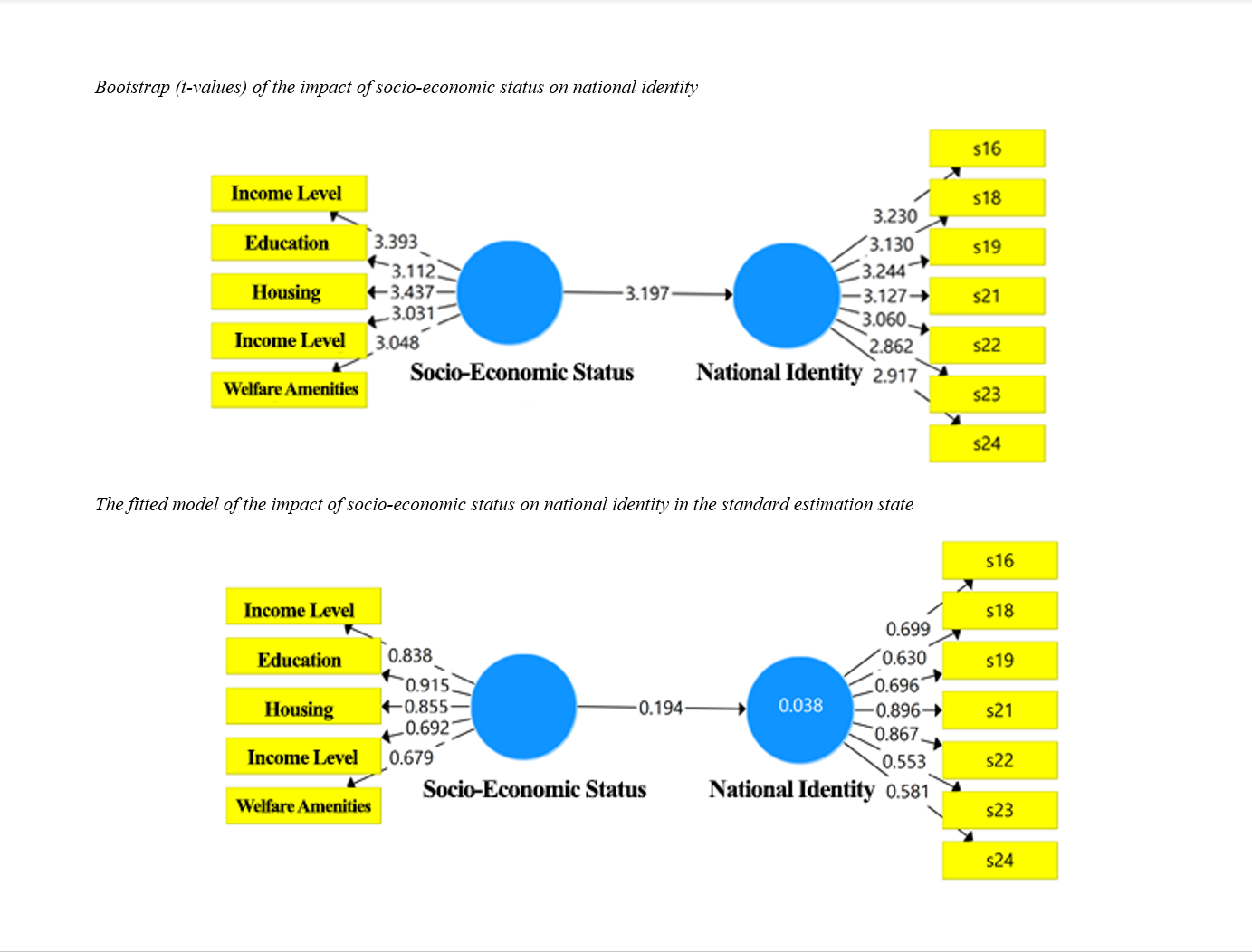Examining the Impact of Socio-Economic Status on the National Identity of Youth (Case Study: Youth Aged 18-30 in District 1 of Shiraz)
Keywords:
Socio-economic status, national identity, youth, education, mental well-being, cultural capitalAbstract
Objective: This study aims to examine the influence of socio-economic status (SES) on the national identity of youth aged 18-30 in District 1 of Shiraz, Iran.
Methods and Materials: A descriptive-correlational research design was employed, with a sample of 384 youth selected through multi-stage cluster sampling. Data were collected using a structured questionnaire that assessed SES and national identity. The questionnaire was self-administered, and the data were analyzed using SPSS and SMART PLS software. Descriptive statistics, factor loadings, and structural equation modeling (SEM) were used to explore the relationships between variables.
Findings: The results indicate that SES significantly influences national identity among youth in Shiraz. Higher levels of education, income, and occupational status were associated with stronger national identity. Additionally, mental well-being, linked to SES, was found to play a critical role in the development of national identity. The study also found that cultural capital, tied to family affluence, significantly contributes to national identity, with youth from higher SES backgrounds exhibiting a stronger sense of national belonging.
Conclusion: The findings suggest that socio-economic status is a critical determinant of national identity among youth. Educational attainment, income, and occupational status, along with mental well-being and cultural capital, are key factors that influence how youth perceive and engage with their national identity. The study highlights the need for targeted interventions to address socio-economic disparities and promote a strong, inclusive national identity.
Downloads

Downloads
Additional Files
Published
Submitted
Revised
Accepted
Issue
Section
License
Copyright (c) 2024 Bijan Golabian (Author); Alireza Khoddami (Corresponding Author); Majid Reza Karimi (Author)

This work is licensed under a Creative Commons Attribution-NonCommercial 4.0 International License.








